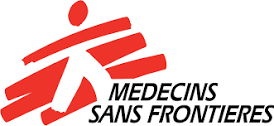Ukraine No Safe Place in the War: Bus Passengers Caught in Frontline Violence
On 23 August, 18 people were travelling to work on public transport in the morning when they came under drone fire in the Dnipropetrovsk region, eastern Ukraine. Six injured people were taken to the nearest local hospital, where a Médecins Sans Frontières (MSF) medical team, together with staff from the Ministry of Health (MoH), provided medical care. This is not the first attack on public transport that MSF teams have responded to. In April 2025, a Russian drone hit a bus in the city of Marhanets, also in the Dnipropetrovsk region, killing 10 people and injuring more than 50.
“The morning of 23 August began with the sounds of shelling and the realisation that the day would not be easy,” recalls Mariia Khvalbota, an MSF anaesthesiologist. “Six patients with injuries of varying severity were brought to us after the bus attack. They were terrified — their hands shaking as they described how the drone ‘hunted’ them. They told me how they had jumped out of shattered windows and doors and ran through the fields to escape.
“All of them had multiple haematomas, bruises and abrasions. We carried out primary surgical treatment of their wounds. Some required intravenous sedation as we extracted fragments of metal and glass from soft tissues. One patient was in a very serious condition with a traumatic brain injury, a complex eye injury and a fractured lower jaw. Tragically, another was reportedly killed at the scene. The drone struck him directly, decapitating him and killing him instantly.” “Afterwards, his wife came to our hospital,” Mariia continues. “She was in deep psychological distress, completely devastated and not knowing what to do. She wanted to understand what had happened to her husband. We provided her with immediate care, to help calm her down.”
The frontline in Ukraine continues to shift, moving closer to the Dnipropetrovsk region and making life increasingly dangerous for communities there. Access to healthcare in these areas is extremely limited. According to local volunteers, more than 200,000 people need to be evacuated from conflict areas in Donetsk and Dnipropetrovsk regions. The humanitarian organisation Proliska reports that in Dnipropetrovsk region, transit centres — where displaced people can stay for a few nights — are overcrowded.
Every day, people with limited mobility, the elderly, and families with children are forced to flee, often carrying little more than their most basic belongings. All of them are in urgent need of sustained support, including social and medical assistance.
MSF medical teams continue to support hospitals close to the frontline. Since the beginning of 2025, MSF teams treated more than 7,400 patients in the emergency departments. Around 60 per cent of trauma cases seen were related to the ongoing war.
Hannah Hoexter
